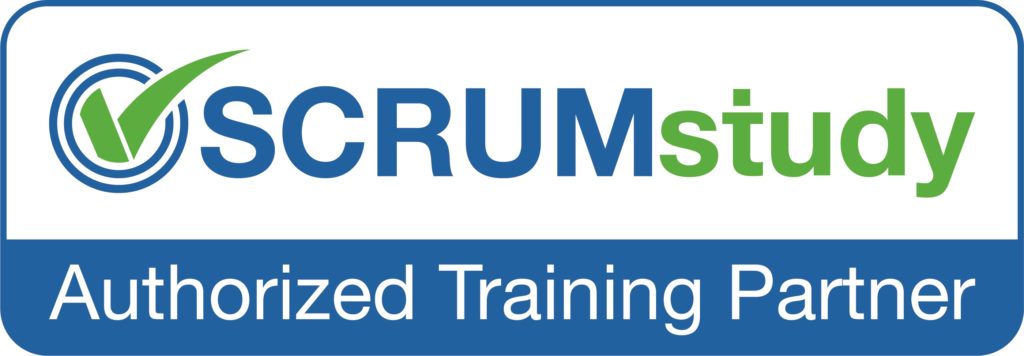category
Expert Scrum Master Certified (Including Exam)

Type
Virtual
Classroom ILT
Skill Level
Available dates
Learning Path
Virtual
Duration
1 Day

TYPE
Virtual
Classroom ILT
LEARNING PATH
SKILL LEVEL
DURATION
AVAILABLE DATES
Introduction
Expert Scrum Master Certified (ESMC™) certification is the next step for Scrum practitioners to further demonstrate their expertise in Scrum methodology. This will test your ability to manage complex Scrum projects and scale Scrum in complex projects involving big project teams, programs and portfolios.
SCRUMstudy’s online live proctored exams allow you to take your certification exams from the comfort of your home using a webcam and a reliable internet connection.
Professional Development Units (PDUs) 21.
Audience Profile
This certification is suitable for anyone who is an expert in the Scrum team and wants to handle complicated Scrum projects as an Expert Scrum Master Certified.
Pre-requisites
To become an Expert Scrum Master Certified (ESMC™) certified professional you should fulfil the following criteria:
- Should have three years of experience managing Scrum/Agile Projects
- Should be Scrum Master Certified (SMC™), Scrum Agile Master Certified (SAMC™) and Scrum Product Owner Certified (SPOC™)
- Should submit 500 words write up about two Scrum/Agile projects
Course objectives
- This course aims to familiarize students with the concepts, advantages, and challenges of the Scrum methodology.
- Delegates will be equipped with the knowledge needed to play the role of a Scrum Master in their organizations and help their organizations adopt Scrum methodology. Furthermore, students will develop an understanding of the other roles in Scrum.
- Delegates are led through simulated case scenarios during which they carry out a Scrum project.
- Delegates have knowledge pertaining to and can anticipate issues related to the practical implementation of Scrum.
- Delegates will be armed with the proper tools to address, resolve, and take the lead on Scrum issues in their organizations.
Course content
| Session 1: Overview of Agile | |
|
|
|
|
| Session 2: Overview of Scrum | |
|
|
| Session 3: Overview of A Guide to the Scrum Body of Knowledge (SBOK® Guide | |
|
|
|
|
| Session 4: Selling Scrum | |
|
Scrum and Team members |
|
|
| Session 5: Getting Ready for Scrum | |
|
|
| Session 6: Enterprise Scrum | |
|
|
| Session 7: Special Topics | |
|
|
|
|
Associated certifications and exam
This course prepares students to write the SCRUMstuy’s Expert Scrum Master Certified (ESMC™) exam.
On successful completion of this course students will receive a Torque IT attendance certificate.

Scrum Overview
Scrum is the most popular Agile framework. It is an adaptive, iterative, fast, flexible, and effective methodology designed to deliver significant value quickly and throughout a project.
Scrum ensures transparency in communication and creates an environment of collective accountability and continuous progress. The Scrum framework, as described in the Scrum Body of Knowledge Guide (SBOK™), is structured in such a way that it supports product and service development in all types of industries and in any type of project, irrespective of its complexity.
A Scrum project involves a collaborative effort to create a new product, service, or other result as defined in the Project Vision Statement. Projects are impacted by constraints of time, cost, scope, quality, resources, organizational capabilities, and other limitations that make them difficult to plan, execute, manage, and ultimately succeed. However, successful implementation of the results of a finished project provides significant business benefits to an organization. It is therefore important for organizations to select and practice an appropriate project delivery methodology.
A key strength of Scrum lies in its use of cross-functional, self-organized, and empowered teams who divide and execute their work in short, concentrated work cycles called Sprints. The focus of Scrum on value-driven delivery helps Scrum Teams deliver results as early in the project as possible.
Scrum vs. Traditional Project Management Traditional project management emphasizes on conducting detailed upfront planning for the project with emphasis on fixing the scope, cost and schedule – and managing those parameters. Whereas, Scrum encourages data-based, iterative decision making in which the primary focus is on delivering products that satisfy customer requirements.
To deliver the greatest amount of value in the shortest amount of time, Scrum promotes prioritization and Time-boxing over fixing the scope, cost and schedule of a project. An important feature of Scrum is self-organization, which allows the individuals who are actually doing the work to estimate and take ownership of tasks.
